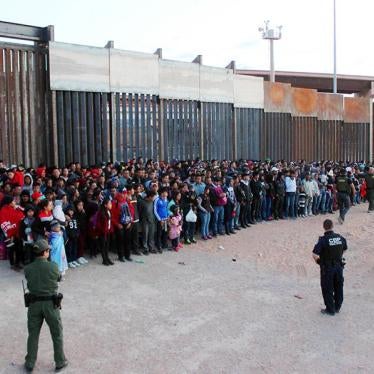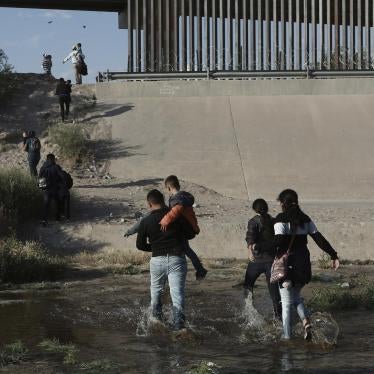July 12, 2019
Immigrant Rights Groups: Congress Must Investigate Separation & Suffering Caused by Trump ‘Remain-in-Mexico’ Policy
Recent Stories Demonstrate Great Harm to Children on Both Sides of Border
- A woman from El Salvador traveling with her 4-year-old daughter and two younger siblings entered the U.S. near Tijuana, Mexico, to seek asylum. The woman had been the primary caretaker for her siblings ever since their mother was murdered in El Salvador. Upon apprehension by Customs and Border Protection (CBP), the woman and her child were detained and returned to Mexico to await their immigration court hearings, while her siblings were transferred to the Office of Refugee Resettlement (ORR), which is responsible for the care and custody of unaccompanied children
- A Guatemalan father and his 15-year-old son were detained separately in CBP holding cells known as hieleras (iceboxes) because of their frigid, cramped conditions. Before separating them, CBP officers tore up the son’s birth certificate and threw it in the trash. After four days in CBP custody, the father was returned to Mexicali under the ‘remain-in-Mexico’ policy. The son was transferred to ORR custody. Following the separation, the son was so traumatized that he had to be hospitalized.
- After crossing the border in Texas, a Nicaraguan mother and her two sons, ages 7 and 18, were detained in a CBP hielera for four days. The mother and her younger son were then sent to California, where they spent four more days in CBP custody before being returned to Mexico. Initially, the mother had no idea where to find her older son but learned later that he was detained in Texas.
- Fearing gang violence, a Salvadoran family of four fled to the United States to seek asylum. Following apprehension by CBP, the mother and two daughters were detained for seven days in a hielera. Although they became gravely ill, CBP did not allow them to see a doctor. The mother and older daughter have since been returned to Mexico, while the younger daughter and her father (who had been separately detained) were released to live with relatives.








